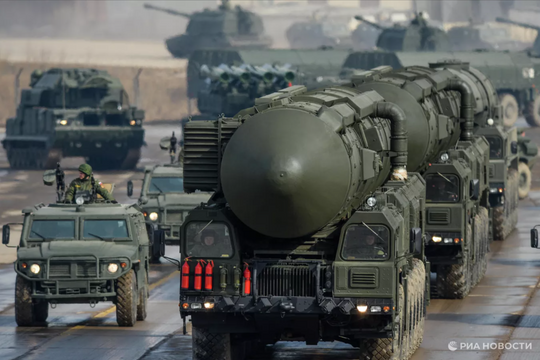NATO confident of weathering political storms in the US and France
NATO chief Jens Stoltenberg said on June 27 that the "resilient" military alliance could weather any political changes in major powers ahead of tough elections in the United States and France.
.jpg)
Votes on both sides of the Atlantic featured far-right candidates – who have a history of hostility to the military alliance, and are known for their cozy relations with its main rival, Russia.
“It has been proven that in fact, when countries have had to choose… between staying in NATO and the protection, the security that NATO provides, or weakening NATO, going it alone, they have chosen NATO,” Mr. Stoltenberg told AFP in an interview. “We have shown great resilience because it is clear that we are in the best interest of each other, and that applies to the United States and to Europe,” he added.
Stoltenberg spoke ahead of the first debate between President Joe Biden and former President Donald Trump ahead of the November presidential election in military superpower America. Major European ally France is also just days away from holding an early vote that could bring a far-right government to power for the first time since World War II - although the leader of the far-right National Rally (RN) party, Jordan Bardella, has tempered his party's stance by vowing to respect France's international commitments, including on NATO.
“I expect that regardless of the outcome of the US election, the US will remain a strong NATO ally, because it is in its own security interest,” said Mr. Stoltenberg, whose term ends in October. “A strong NATO is good for Europe, but it is also good for the United States.”
“The criticism from former President Trump was not primarily directed at NATO, but against NATO allies who were not spending enough, and that has changed,” Mr Stoltenberg stressed. However, he warned that no leader should be allowed to doubt NATO’s Article 5 commitment to mutual defence, which means an attack on one member is considered an attack on all. “That is NATO’s core responsibility and any attempt to undermine that credibility would only increase the risk,” Mr Stoltenberg said.
Referring to the war in Ukraine, Mr. Stoltenberg said that Russian forces were not capable of making major advances despite being in the lead and Kiev was inflicting heavy losses with deep attacks. He said: “We do not have any other signs or reasons to believe that Russia has the ability, the strength to make major breakthroughs.”
Asked whether his successor could face a full-scale war between NATO and Russia during his tenure, the outgoing NATO chief said he believed the alliance’s military might would deter Moscow. “I am confident that NATO will continue to deter any armed attack against any NATO ally, as we have done for the past 75 years, (as well as) during… the most dangerous period of the Cold War,” he said.
"NATO's purpose is not to wage war but to prevent war and we do not see any imminent military threat to any NATO ally and I am absolutely certain that NATO has the strength to deter future attacks"./.

.jpg)



